Offering a variety of food to your garden birds is beneficial for their health and will help attract different birds species to your garden. But which foods are good to offer and which are not so helpful? This week we are taking a look at the pros and cons of providing porridge oats to your garden birds.
Can Birds Eat Porridge Oats?
Yes - but: is the simplest answer to the question. Oats are very good for birds, and many birds love them. They are a particular favourite of blackbirds.
BUT - never serve cooked porridge to the birds. Anyone who has ever cleaned a porridge pan will know the reason for this. Cooked porridge sets hard when dry. Just imagine this round your beak. It’s quite dangerous.

Yes, birds can eat raw porridge oats. Oats are a very nutritious grain and good for birds in moderation, especially in the winter months. Many birds enjoy oats, especially blackbirds. Never served cooked oats as they are sticky and may glue a birds beak closed as they dry. Always offer water alongside bird food.
And everything in moderation. Oats are great as part of a healthy, balanced, diet, but don’t overdo it! Offer small amounts of uncooked oats.
Why are Porridge Oats Good For Birds?
Porridge oats are good for birds for many of the same reasons they are good for humans.
They are full of slow-release carbohydrates, which help keep up energy and keep birds warm, especially in winter.
Oats contain more protein and fat than other grains along with a host of vitamins and minerals beneficial to birds, including B vitamins, zinc and magnesium.
Which Birds will Eat Oats?
The granivorous bird species will eat oats. These include:
- Blackbirds and finches
- Sparrows
- Doves and Pigeons
- Grouse, Partridge and other game birds
- Buntings.
As you can see, oats will be enjoyed by a wide variety of garden birds.
What Porridge Oats can You Offer to Garden Birds?
Most types of oats that you would use to make porridge or oatmeal will be fine for offering to garden birds as long as they are not cooked.
So, rolled oats, steel-cut oats, jumbo oats and pinhead oats are all good to feed to garden birds.
Don’t offer instant porridge pots or sachets. These contain additives such as sugar and milk powder which aren’t suitable for birds.
How to Serve Porridge Oats to Your Garden Birds
There are three ways you can serve oats to your garden birds.
Serve on its own
You can scatter oats on the ground, on your bird table or put them in a feeder, just as you would with any other granular bird food.
Mix with seed
Bird food mixes often come with grains added in, and there is no reason you shouldn’t mix some oats in with your seed mix.
Make fat balls
Oats are a great addition to homemade fat balls or blocks. And they can be easy and fun to make. Remember to use hard fat, like lard or suet, and two parts fat to one part dry ingredients. For the dry ingredients, you could use just oats, or you could mix in some dried fruit too.
When to Offer Porridge Oats to Garden Birds
Visitors to your bird table will appreciate porridge oats at any time of year. However, they will be particularly useful in the winter when the slow-release carbs they contain help to keep up energy and body weight.
Will Garden Birds Eat other Breakfast Cereals?
Yes, they will!
Your garden birds will thank you for many types of breakfast cereals. Cornflakes, bran flakes, Weetabix, Special K, Rice Crispies, will all go down well. Remember to crush up cereals to make them manageable for little beaks.
Avoid offering breakfast cereals that are sugary, like Frosties, or contain chocolate, like Coco Pops. Too much sugar isn’t good for the birds, and chocolate can be toxic for them.

Also only ever offer dry cereals. Birds can’t digest milk.
Will Garden Birds Enjoy Other Grains?
The granivorous bird species listed above will take many types of grain and grains other than oats are often included in bird food mixes.
Flaked millet is a common addition and loved by a wide range of birds.
Wheat and barley grains are also included in many bird feed mixes. These tend only to be taken by the larder birds like Doves and pigeons. They are too hard and large smaller beaks.
Doves and especially pigeons can take over at the bird table if given a chance. So you might want to think twice before stocking up on foods to encourage them.
And as we’ve noted above, oats are the most nutritious of the grains, for birds and humans.
Can I feed other Kitchen Scraps to Garden Birds?
Yes indeed! The more variety you add to your bird table, the more species of bird you will attract.
There are lots of kitchen scraps that will be enjoyed by birds.
Cooked potatoes and pasta are much appreciated. So is a little fruit, cut into small pieces, or dried fruit soaked in warm water. Grated cheese and raw bacon fat also provide much-needed fats, especially during the winter.
And as well as milk and chocolate, there are a few things you should never feed the birds.
Check out our full guide here.

Always Add Water!
Water is essential to birds for drinking and bathing. It can be challenging to come by for different reasons at many times of the year. So when you are feeding them, be sure there is a source of clean, fresh water nearby. Check out our birdbath guide here.
Porridge Oats - As Good For the Birds As They Are For You
We’ve all heard how good oats are for humans and in the article we’ve seen that they are just as good for the birds as they are for us.
As long as you remember always to feed raw oats, feed in moderation and offer a drink as well, oats are a great addition to your bird feeding routine.
They can help you offer a varied diet which will bring more species to your table.
So, why not give porridge oats a go?
We hope you have enjoyed this article and found it useful.
If you have questions or suggestions, we would love to hear them Leave us a comment below.
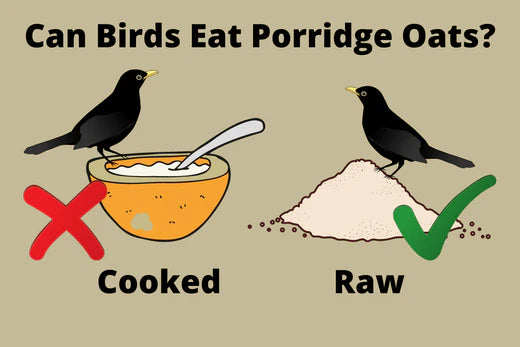
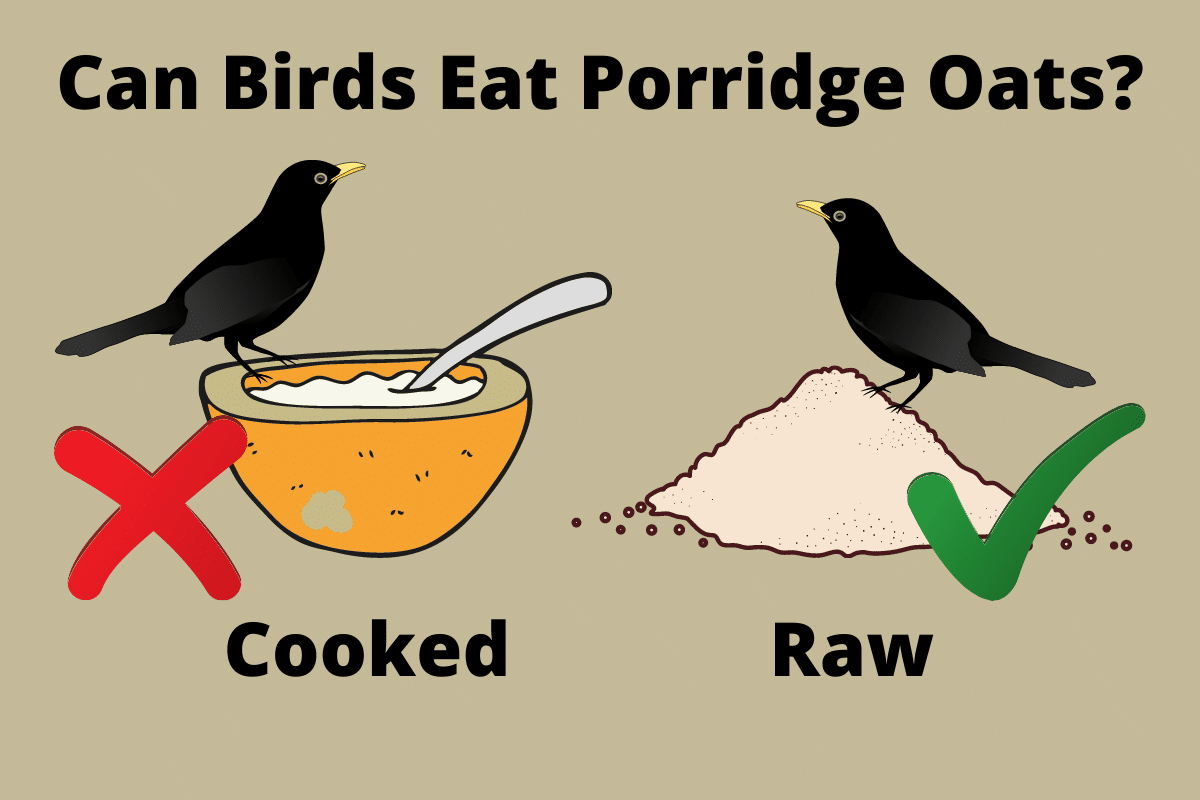
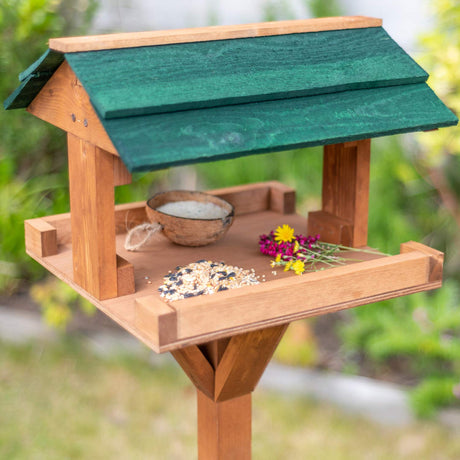
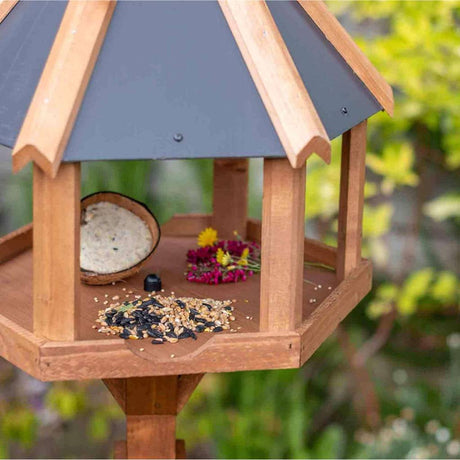
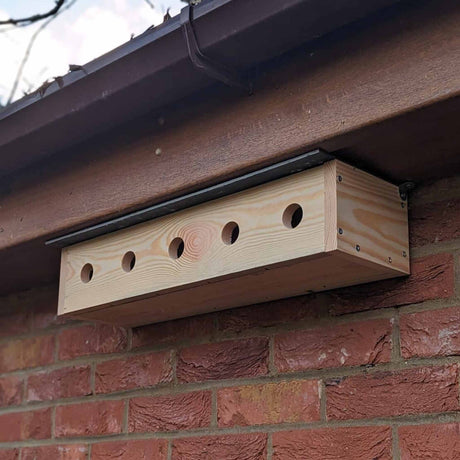
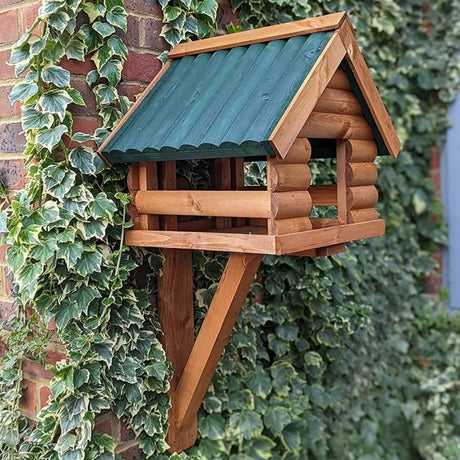
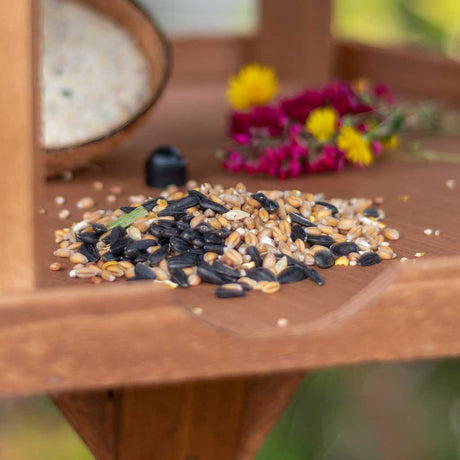
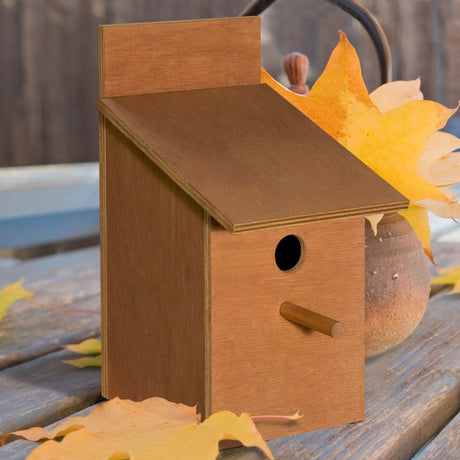

6 comments
Can all aviary vets see/treat ill sparrows?
Can birds eat expired weetabix by one month?
I would not recommend oats in the bird feeder if you have a lot of rain. Mine got wet and moldy. I will try it again in the weed summer when we don’t have do much rain. I live in the NW.
Feathered Friends Enjoying Porridge Delight! ?? Birds are flocking to the goodness of porridge oats, relishing the hearty treat. Join the avian feast by offering a sprinkle of oats in your garden. It’s a heartwarming way to share the love and nourishment with our feathered companions!
In the United States, most all oats are gmo and grown with and covered in “round up” ,a desiccant and pesticide. People nor birds should be eating commercial oatmeals.
Have you actually seen a bird dead as a result of eating cooked oats. I regularly put the scrapings from my porridge saucepan out on my birdtable and it is gobbled up by all the visitors and I have never seen any dead blackbirds, starlings or any other birds. Could it be that you are just postulating another health and safety slant for birds because of what you think may be possible. I don’t expect a sensible reply